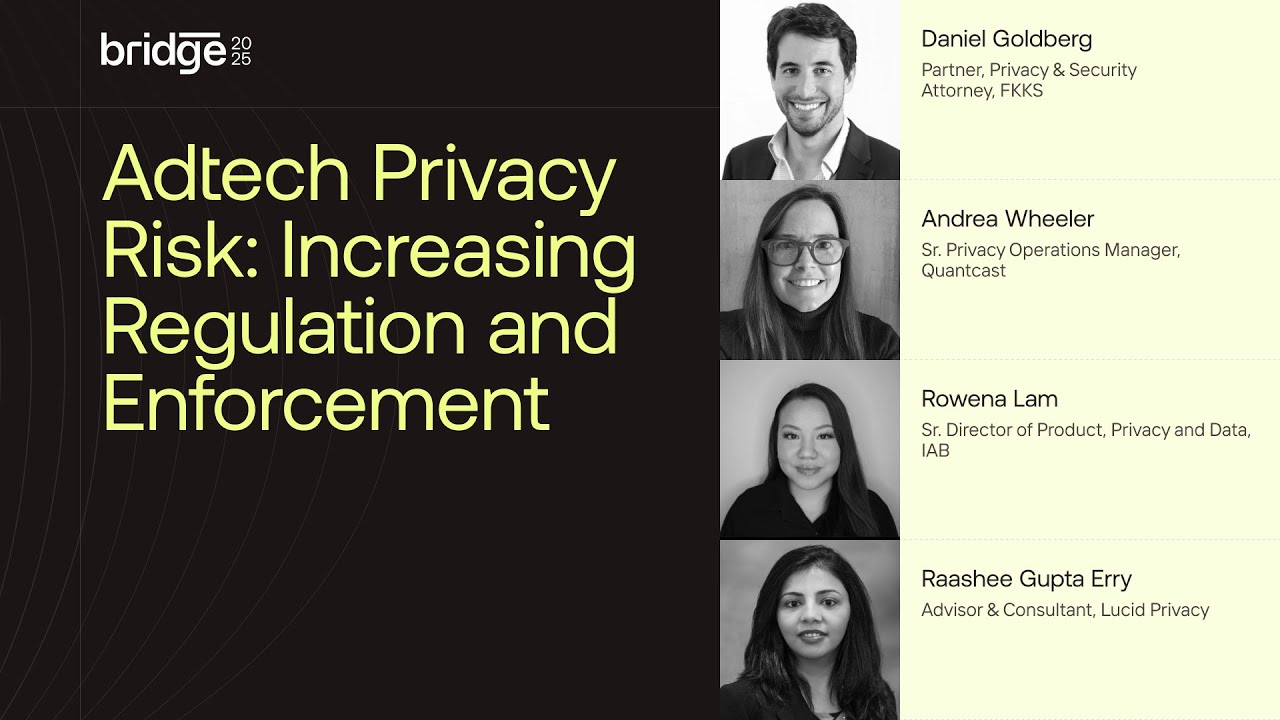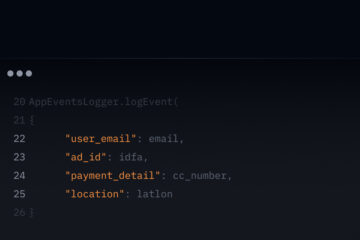Welcome to the Bridge Privacy Summit 2025, where Nishant Bhajaria led a captivating panel discussion with privacy engineering experts. They shared invaluable insights on defining privacy ROI, selecting impactful projects, and fostering collaboration between privacy and engineering teams.
The esteemed panel included:
- Luke Oglesbee – Senior Software Engineer, Remitly
- Alon Levy – Engineering Manager, Uber
- Saima Fancy – Senior Privacy Specialist, Ontario Health
- Nishant Bhajaria – Data Privacy Author and Executive
Exploring Privacy ROI Strategies
Privacy engineers operate in a realm where success metrics differ from traditional engineering roles. Instead of focusing on feature launches or revenue generation, they measure impact through risk reduction, efficiency enhancements, and trust-building.
Looking Beyond Compliance
Luke Oglesbee emphasized the role of privacy engineering in alleviating fears and uncertainties surrounding data handling:
“Providing internal peace of mind is crucial. Clarifying data handling processes and enabling informed risk-based decisions are key aspects of our work.”
Driving Cost Optimization
Saima Fancy highlighted the direct correlation between data minimization and cost savings:
“Implementing data minimization practices within cloud infrastructure leads to significant cost reductions. Identifying redundant data for deletion not only saves storage costs but also enhances security by reducing exposure.”
Measuring Sentiment and Adoption
Alon Levy stressed the importance of evaluating how privacy initiatives are perceived within an organization:
“In a corporate setting, sentiment towards privacy initiatives is critical for success. To drive acceptance, privacy teams must collaborate effectively with engineering and product counterparts.”
Choosing High-Impact Projects
Privacy engineers must navigate a landscape that balances business requirements, regulatory mandates, and technical feasibility. Strategic project selection ensures compliance without hindering innovation.
Aligning Privacy Goals with Business Objectives
Saima Fancy emphasized the importance of establishing internal governance before addressing external regulations:
“Building trust is paramount in today’s business environment. Internal compliance lays the foundation for meeting external regulatory standards like GDPR and CCPA.”
Prioritizing Business Enablement
Luke Oglesbee outlined the criteria for project prioritization:
“We focus on enhancing customer experience, fostering brand trust, and minimizing data storage to mitigate risks. Privacy engineering should empower business agility and assurance.”
Strategically Balancing Friction and ROI
Alon Levy highlighted the need for privacy teams to judiciously introduce friction:
“Strategic friction must align with privacy ROI to avoid eroding trust with core engineering partners. Disruption should be justified by tangible privacy benefits.”
Fostering Collaboration Across Teams
Privacy engineering serves as a nexus connecting legal, compliance, engineering, and product teams. Effective collaboration positions privacy as an enabler rather than a hindrance.
Early Involvement in Product Discussions
Saima Fancy stressed the need for privacy teams to engage in product dialogues from inception:
“Integrating privacy early prevents last-minute compliance issues that strain relationships. Privacy considerations should be woven into product development from the outset.”
Bridging Legal and Engineering Perspectives
Luke Oglesbee advocated for a collaborative approach with engineers:
“Engineering teams value data ownership and seek clear guidance on privacy requirements. Privacy teams should offer both directives and pathways for implementation.”
Alon Levy underscored the importance of providing scalable privacy solutions:
“Our focus should be on delivering privacy tools that streamline compliance efforts and accelerate project delivery.”
Adapting Privacy Strategies to Evolving Risks
Privacy landscapes are dynamic, with regulations and business demands in constant flux. How do privacy engineers ensure their frameworks remain effective?
Embracing Flexibility in Program Design
Alon Levy recommended designing adaptable privacy programs:
“Building flexible frameworks avoids trade-offs between business agility and regulatory compliance down the line.”
Leveraging Automation for Efficiency
Luke Oglesbee highlighted the role of automation in scaling privacy efforts:
“Automation simplifies compliance tasks, enabling engineers to onboard privacy solutions seamlessly and minimizing manual burdens.”
Proactively Leading Technical Strategy
Saima Fancy emphasized the need for proactive privacy engagement:
“Anticipatory privacy assessments and reviews should precede technology deployments to preempt compliance issues and data risks.”
Evolving Privacy Engineering as a Strategic Function
Privacy engineering roles encompass diverse responsibilities across organizations, ranging from data security to compliance automation and consultancy.
Embracing Cross-Disciplinary Governance
Saima Fancy recommended integrating privacy engineering into data and AI governance frameworks:
“Privacy engineering transcends security and compliance; it’s about holistic data governance that safeguards information, ensures legal adherence, and supports business operations.”
Nurturing Future Privacy Leaders
The Carnegie Mellon Privacy Engineering Program exemplifies interdisciplinary training:
“By uniting experts from various fields, students learn to address data protection challenges from multifaceted perspectives.”
Keen to explore diverse privacy engineering approaches across organizations?Check out our comprehensive guide, Introduction to Privacy Engineering, covering key roles and cutting-edge frameworks. It’s an ideal resource for grasping the strategic significance of privacy engineering.
Proving the Value of Privacy Engineering
The panel concluded with a crucial takeaway: Privacy engineers must proactively demonstrate their impact and value.
Nishant Bhajaria left the audience with a compelling message:
“Take charge of your privacy ROI. Define your worth, or others will do it for you, potentially undervaluing your contributions.”
🔗 Watch the full discussion
🎧 Listen to the Podcast



